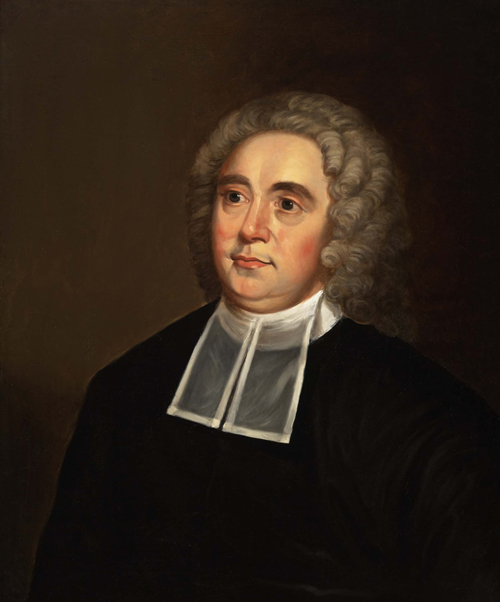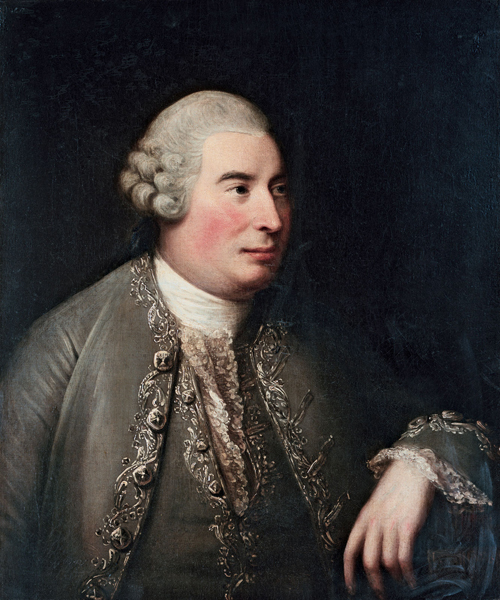
Your complimentary articles
You’ve read one of your four complimentary articles for this month.
You can read four articles free per month. To have complete access to the thousands of philosophy articles on this site, please
Articles
Berkeley’s & Hume’s Philosophical Memoirs
David Berman looks for similarities and differences in the aims of the two thinkers.
There are interesting points of both agreement and disagreement in the lives of George Berkeley (1685-1753) and David Hume (1711-1776), arguably the two greatest British philosophers. I also think we have an outstanding philosophical memoir from each, summing up their work, especially in respect of their ruling passions. Both memoirs contain the philosopher’s very last philosophical words, which can be naturally read as their final philosophical testaments. Yet for all that, I don’t think that this has been noticed by their biographers, or by those who have written on them philosophically.
All students of philosophy should know of Hume’s memoir, My Own Life, which he wrote the year he died, 1776, and which was published a year later. But what is Berkeley’s counterpart? It is the last section, §368, of his Siris, his last philosophical work, published in 1744.

George Berkeley by Alfred A. Hart, 1858
As a memoir in the fuller sense, My Own Life tells us a great deal about Hume’s character. He portrays himself as cheerful and content, sociable, studious, and independent-minded, also philosophical, by which he seems to include being even-tempered or stoical as well as concerned with philosophy per se. In the course of the memoir he also shows himself to be witty and humorous. All of this comes out explicitly in his own description of his character in the final paragraph:
“I am… or rather was… a man of mild dispositions, of command of temper, of an open, social, and cheerful humour, capable of attachment, but little susceptible of enmity, and of great moderation in all my passions. Even my love of literary fame, my ruling passion, never soured my humour” (p.174).
It is indicative of their styles that while both memoirs are succinct, Berkeley’s is even more so. Indeed, it is short enough to quote here in full:
“The eye by long use comes to see even in the darkest cavern: and there is no subject so obscure but we may discern some glimpse of truth by long poring on it. Truth is the cry of all, but the game of a few. Certainly, where it is the chief passion, it does not give way to vulgar cares and views; nor is it contented with a little ardour in the early time of life, active perhaps to pursue, but not so fit to weigh and revise. He that would make a real progress in knowledge must dedicate his age as well as youth, the later growth as well as first fruits, at the altar of Truth. ‘ Cujusvis est errare, nullius nisi insipientis in errore perseverare’: Cicero [‘It is the fate of every man to err, of none but a fool to persist in error’: trans, Vincent Denard].”
Although Berkeley does not write in the first person, I think it is evident that he must be talking about himself; first about his ardour for truth in the heroic years, circa 1707-13, in which he produced his three philosophical masterpieces, the New Theory of Vision (1709), Principles of Human Knowledge (1710) and Three Dialogues (1713); then of his concern to weigh and revise, shown partly in his second great phase of authorship, between 1732-1735, but even more, finally, in his Siris, where he dedicates his old age – he was then 59 – at the altar of Truth, as he did in his early life, when he was in his middle twenties. So the first fruits as well as the later growth. One point of agreement between the two philosophers is that Hume, like Berkeley, published his major work, A Treatise of Human Nature (1739-40), in his twenties. But their key common point is in what Berkeley calls his ‘chief passion’, and Hume twice calls his ‘ruling passion’ (Memoir, pp.170 and 174), and which Hume comes back to again and again. However, contrary to Berkeley, Hume’s passion was his desire for ‘literary fame’ (ibid). Thus Hume says that “almost the whole of my life was spent in literary pursuits” (p.169).
The first thing we should observe here is Hume’s great honesty in confessing that his chief passion was for literary fame not for truth. So although Hume’s core desire was not truth (which would perhaps be expected from a true philosopher at that time), he shows his commitment to perhaps the next best thing for a philosopher – truthfulness.
For Hume, then, as well as valuing the array of admirable civil virtues mentioned above, the greatest good is worldly honour. For Berkeley it is attaining truth – gaining light in this ‘dark cavern’ – which , as he makes clear in earlier sections of Siris (e.g. §263, §340), alludes to Plato’s allegory of getting out of the cave of ignorance and ascending into the realm of truth. In line with their respective philosophical testaments presenting two very different ideas of the highest good, the two philosophical memoirs differ considerably in tone. Hume’s is urbane and polite; Berkeley’s more fervent.

David Hume by David Martin, 1770
I would also say that their respective ruling passions reflect the change that has taken place in philosophy especially since the late nineteenth and early twentieth centuries, when the truth – the traditional aspiration of philosophers – ceased to be the cry of all. So Berkeley can be heard as voicing the last authentic cry of the idealistic (as well as idealist) tradition in philosophy that goes back to Plato, whereas Hume can be seen as the prophet of the new consensus; a herald of the socio-linguistic philosophers of our own time.
The only statement in Hume’s memoir which might be thought to go against my ‘worldly honour rather than truth’ interpretation of him, is where he says “It is difficult to be more detached from life than I am at present” (p.174). But what Hume means by this is not the metaphysical detachment of Plato or even Berkeley, but the serenity and lack of fear in the face of death arising from his naturalism and disbelief in a next life. Here too, in his placid attitude to death and personal oblivion, Hume is the prophet of the new educated consensus.
Two final points of similarity between Berkeley and Hume might be mentioned. Both were great writers, although Berkeley seems a more natural one who did not place the same value on style as Hume clearly did. They also agree in expressing reservations about their early work: Hume in his memoir, and more emphatically in his 1777 ‘Advertisement’ to his Essays and Treatises (p.2); Berkeley in the section from Siris I quoted above. But in neither case have they been much heeded by their commentators.
© David Berman 2017
David’s works include Alciphron in Focus (Routledge, 1993). A short account of his present work and method of doing philosophy can be accessed at artisanphilosophybrochure.wordpress.com.









